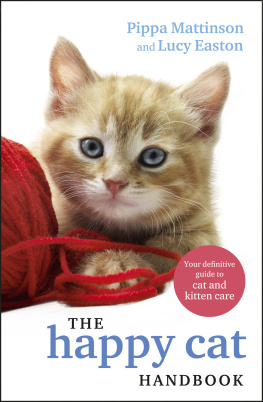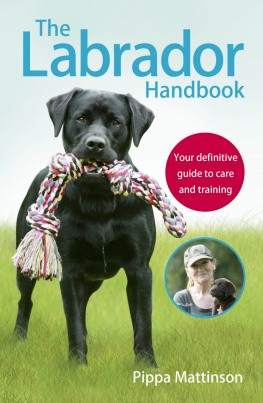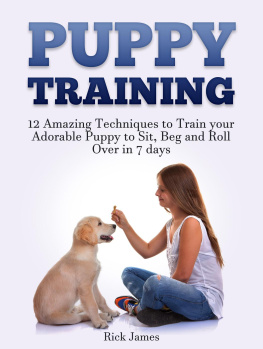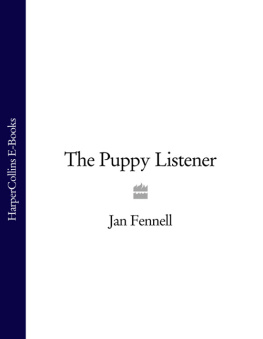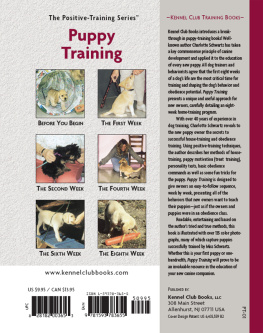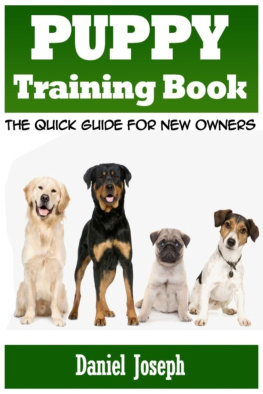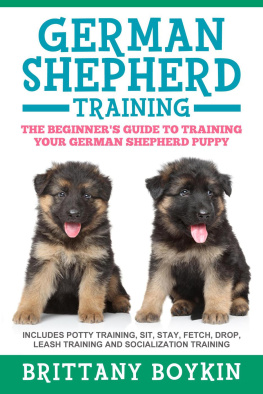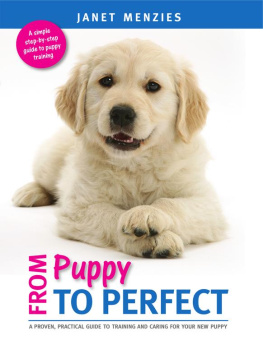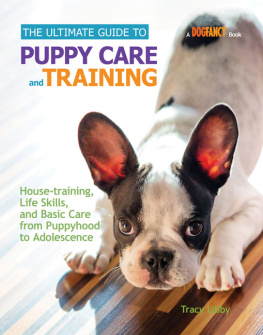About the Book
THE HAPPY PUPPY HANDBOOK is the only puppy-training manual you will ever need.
From preparing the house and garden before the puppy arrives, to introducing your new friend to all the family (including children and other animals), and solving problems like crying, night waking, feeding, upset stomachs, biting, chewing and jumping up, this book is packed with all you need to know as a puppy owner.
PIPPA MATTINSON is in touch with 150,000 dog owners every month through her website www.thelabradorsite.com and knows exactly what puppy-owners want. The founder of The Gundog Trust, her first book Total Recall has won praise from many happy dog owners.
About the Author
Pippa Mattinson is a zoologist and the founder of The Gundog Trust the UKs first gundog training and welfare charity. She is a keen supporter of modern, science-based dog training methods, and is passionate about helping people to enjoy their dogs. Visit her website for more information: www.pippamattinson.com
OUR UNIQUE PARTNERSHIP with dogs is built upon ten thousand years or more of friendship and co-operation. It has weathered all the changes we have experienced together on our journey through time.
It is difficult to grasp the sheer scale of the history we share with dogs, and fascinating to consider that somewhere back in the Stone Age your own puppys paleolithic predecessors were being embraced into human families. The depth of this association between our two species is reflected in the privileges we now allocate to our dogs and in the emotional ties we form with them.
Our relationship with the domestic dog is truly remarkable, and every new puppy represents the chance to reaffirm the bond between us.
The addition of a puppy to your family is a significant event and should be a wonderful experience for all concerned. Your puppy will be special and unique, a product of both his own genetic inheritance and of the loving environment you provide for him. And like every new puppy, his arrival represents the promise of a new life and shared future together.
The build-up to the day you collect your puppy will be exciting and even a little daunting. You will want to do the very best you can for him, to make sure you give him the right things to eat, and the right amount of exercise. You will also want to make good choices about your puppys health and training. The purpose of this book is to make sure you have all the information you need to look after your puppy on a day-to-day basis, and to make those important decisions about his care. Above all, I want to help you make sure that your puppy becomes a happy and valued member of your family and of the wider community.
Bringing a puppy into your life is not just a question of buying a new pet. It is a bigger decision than that, a much greater responsibility and opportunity. In many ways, dogs are far more than simply pets they are an extension of our human family.
As you await the arrival of your new puppy, you will have expectations of your life together. We all want our puppies to be clean, happy, healthy and friendly. We want them to be gentle with our children and other pets. We may look forward to long walks together, games together, resting by the fire together. We hope that our puppy will come racing towards us when we whistle and that he will learn to follow basic house rules at home.
Whilst expectations are always high, life with a puppy is not always plain sailing. New puppies are messy, untrained and can be destructive and noisy. We all know that adult dogs should be clean, obedient, quiet and well mannered. But getting from the first state to the second in the space of a few months is not inevitable, as anyone who has met an untrained and bad-mannered adult dog will tell you. Raising a good canine citizen requires the input of a willing and committed owner.

Most people accept that they will need to invest some time and effort in realising their aspirations for their puppy. They appreciate that puppies need help to grow into well-behaved dogs. But many new dog owners are unclear about the kind of help their puppy will need, or the point at which he will need it. To complicate matters, there is a lot of confusing and conflicting advice available to new puppy owners. It can be difficult to know which way to turn. Should you dominate your puppy? Or train him with treats? Can you feed him chicken? Is it spoiling him to let him sleep on your sofa or let him eat before you? How can you be a pack leader and his friend at the same time? Are dog crates cruel, and should you teach your dog to wee on puppy pads or newspaper? There are so many questions, and so many different opinions on how to care for a puppy and how to achieve the dog of your dreams.
Throughout the next few chapters we will be building up your understanding and knowledge about how puppies learn and develop. We will look not only at the physical changes in your puppys body over the next few months, and how to keep him healthy, but also at what goes on inside his head. By the end of this section of the book, you will know the answers to the important questions above, and to many others, too. You wont be dependent on outdated opinions to make good decisions for your puppy, or misled by the latest fads in dog care.
Puppies get into a lot of trouble for simply being puppies. A great deal of that trouble can be avoided if we close the gap between what is expected of the puppy and what he is capable of. Understanding what is normal for puppies is the first step in that direction.
People have speculated and disagreed for decades on the true origins of the domestic dog, but DNA testing has finally put the debate to bed. Your puppys ancestors were wolves, and some of the natural instincts he still carries in his genes are relics from his past and evident in his early behaviour patterns. Despite the way in which his development has been influenced by domestication, your puppy is still very much a dog. He still comes programmed with a whole bundle of instincts designed to ensure that he is fit for life as a social predator. And some of these instincts, which are perfectly acceptable in a wild-dog family, may result in behaviour that is decidedly inappropriate in our modern world. Chasing your neighbours cat, for example, is unlikely to go down well, yet many breeds of dog are still


